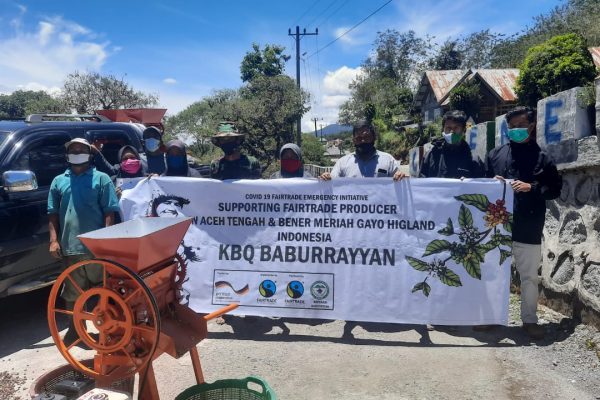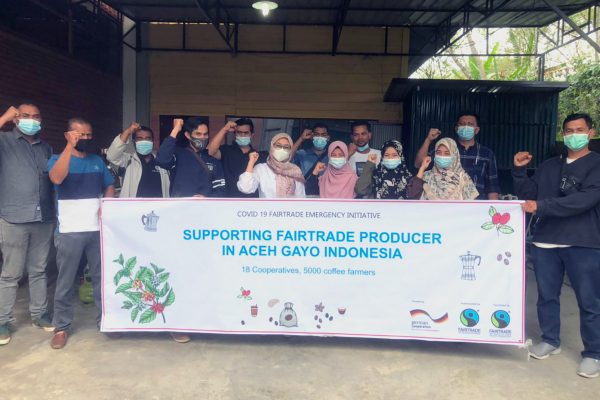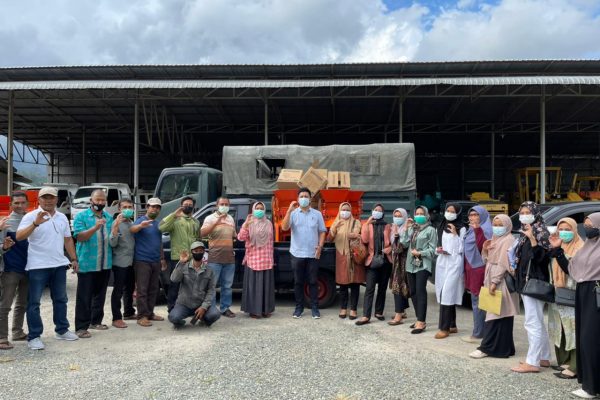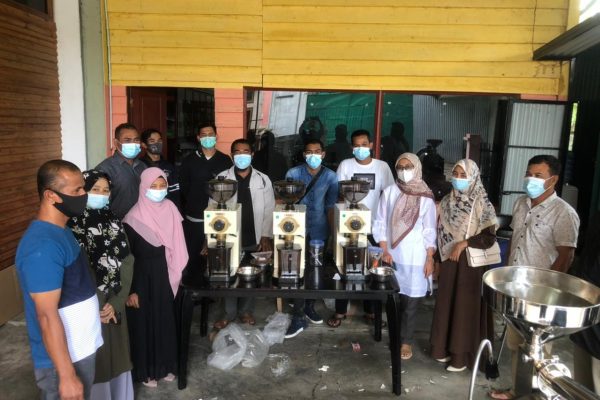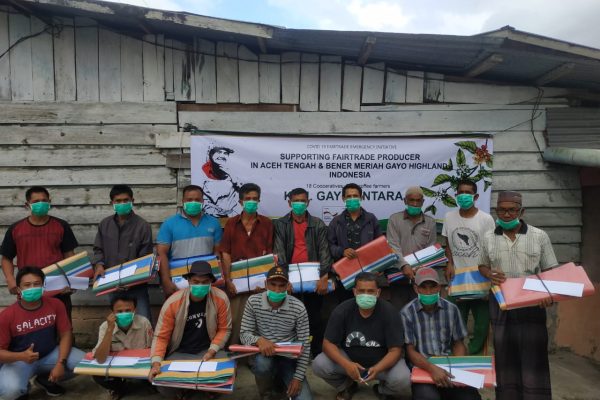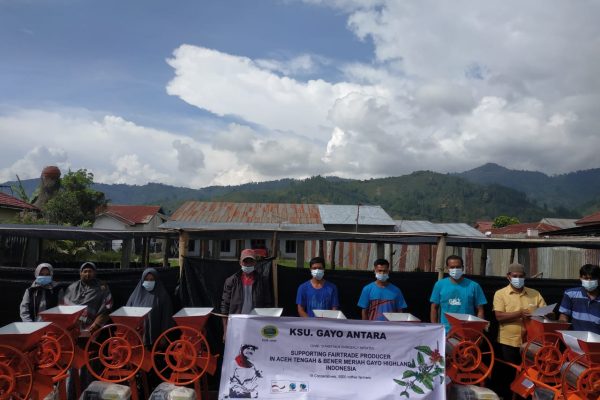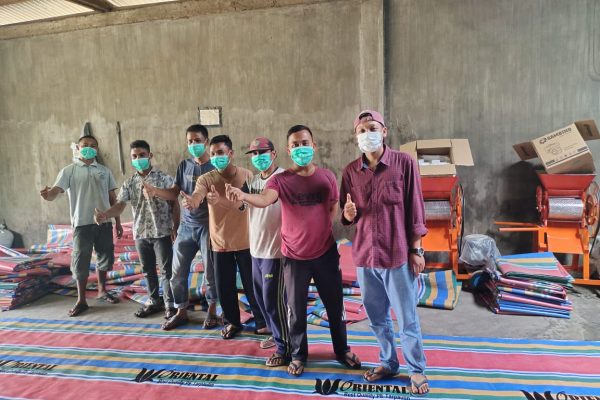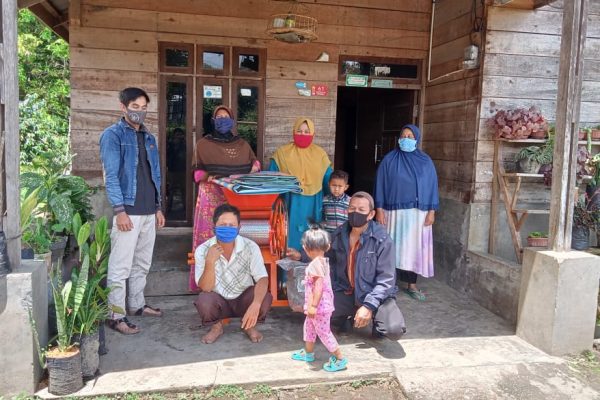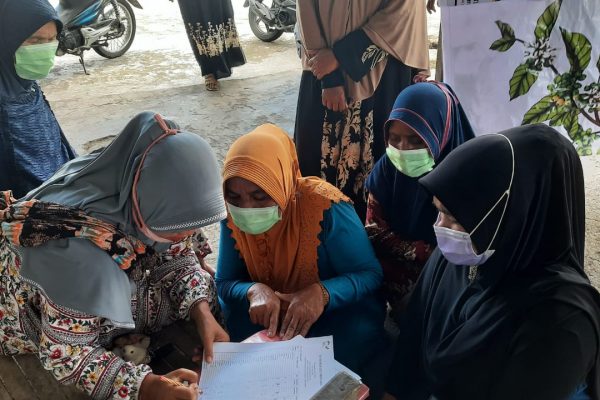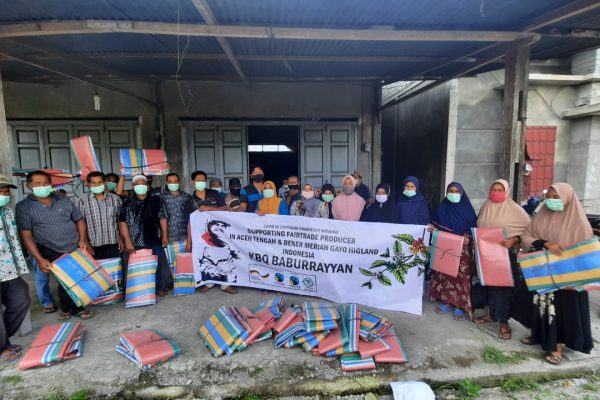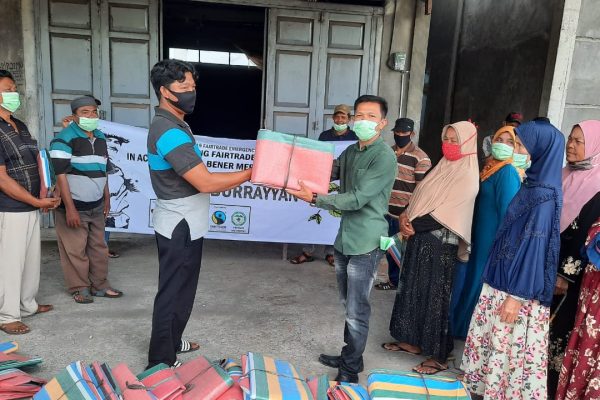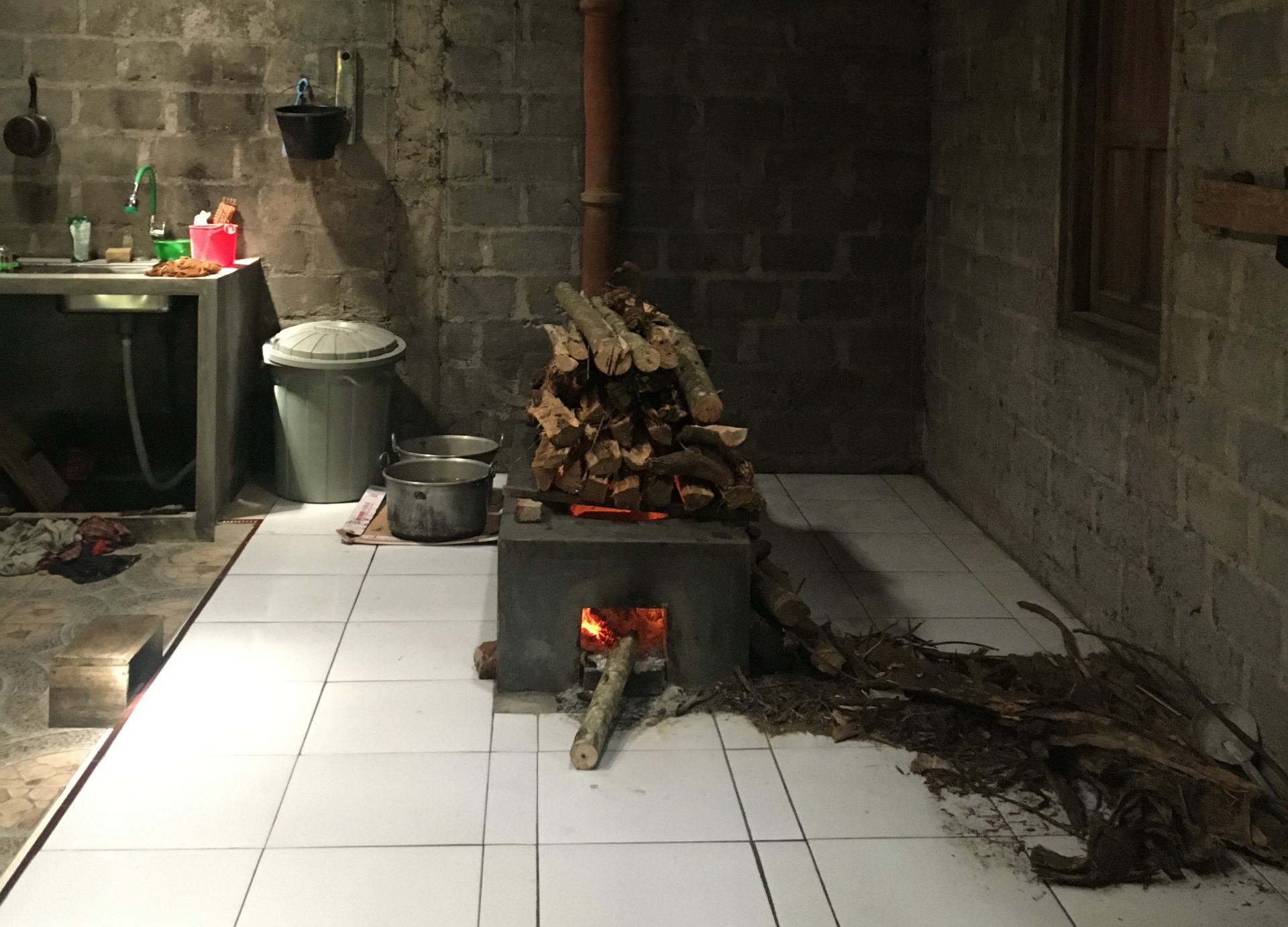
The Renovation of Household Level Coconut Sugar Cooking Kitchens to Enable HACCP Compliance for 200 Coconut Sugar Farmers in Java Island, Indonesia
The making of coconut sugar is historical to the people of Java island, especially to those who live in the areas of central Java. Coconut sugar making has become a traditional household craftmanship that is preserved from generation to generation. Coconut sugar can be categorized as an artisanal product that is produced by household craftsmen and craftswomen or termed as coconut sugar artisanal farmers/craftsmen. In Fairtrade system, they are termed as coconut sugar household farmers or widely and fall into the category of small producers.
In general, a husband and a wife in a household work together to make the coconut sugar. The man or the husband usually the one that taps the coconut sap and then the coconut sap is cooked by the wife, and transformed into granule coconut sugar or blocked solid coconut sugar. Commonly, the tapping of the coconut sap is still performed by men. This is mainly due to the practice of coconut sap tapping itself that is still manually done and requires the tapper (or called as Penderes in the Javanese language) to climb about 10-15 meters height of a coconut tree to reach for the blossoming flowers of coconut tree (or called as manggar in the Javanese language) as the source of coconut sap (or called as nira in the Javanese language). The wife usually cooks the fresh tapped nira, right after the husband has finished tapping the the coconut sap (nira).
The cooked coconut sugar is then sold to the cooperative, sometimes via the collectors. The coconut sugar will be processing in mass volume at the cooperative, or in other supply chains, at the trading companies which partner with the cooperatives. HACCP is applied at the mass processing level, it can be at the cooperative or at the trading companies partnered with the cooperative.
Rohimatun,
"We were much worried when our village chief announced the news about the COVID 19 pandemic and the mandatory health protocols for the prevention of the COVID 19 spread. We are trying our best to follow the health protocols, like avoiding gathering and going to crowded places like markets in the nearby district. However, we maintain our daily coconut sugar production and soon we have managed to adapt to the new normal.
We are very grateful with the support from Fairtrade International during this pandemic. The kitchen renovation helps us improve our coconut sugar productivity. Our income relies on the coconut sugar sales. The relief surely supports us during this pandemic."
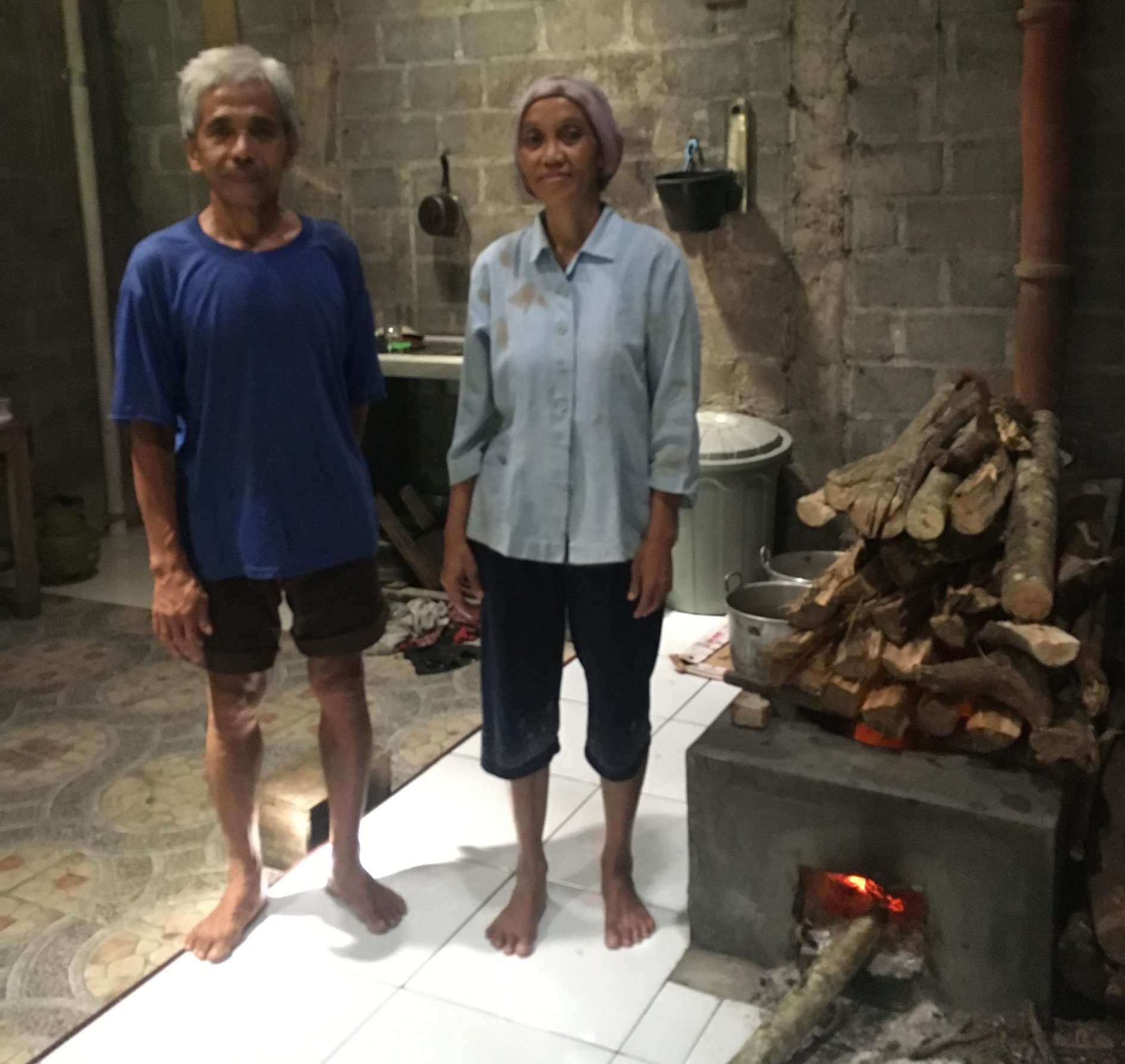
The majority of these coconut sugar household farmers still employ the traditional ways of cooking the tapped coconut sap (nira), by using the traditional open fire stove or the traditional furnace fueled with woods or husks (mostly woody husks). The cooking apparatus are generally located in the backside of the farmers’ houses or near the kitchen area of the house, but mostly separated from the domestic cooking area. The traditional open fire stove causes smoke that contains wood ashes to disperse openly in the kitchen area. The smoke inhaled by the coconur sugar craftsmen or craftswomen can lead to chronic and accute respiratory diseases. The smoke also stains the kitchen area.
Tuti Arianti
"The renovation of production kitchen has helped me produce better quality of coconut sugar. Since better quality of coconut sugar is also priced better, I can get more income. It also feels good to work in appropriate condition. I will definitely maintain the kitchen and will do further renovation later. We are thankful for the help of renovation, it keeps us going with our coconut sugar production and therefore sustaining our income as well."
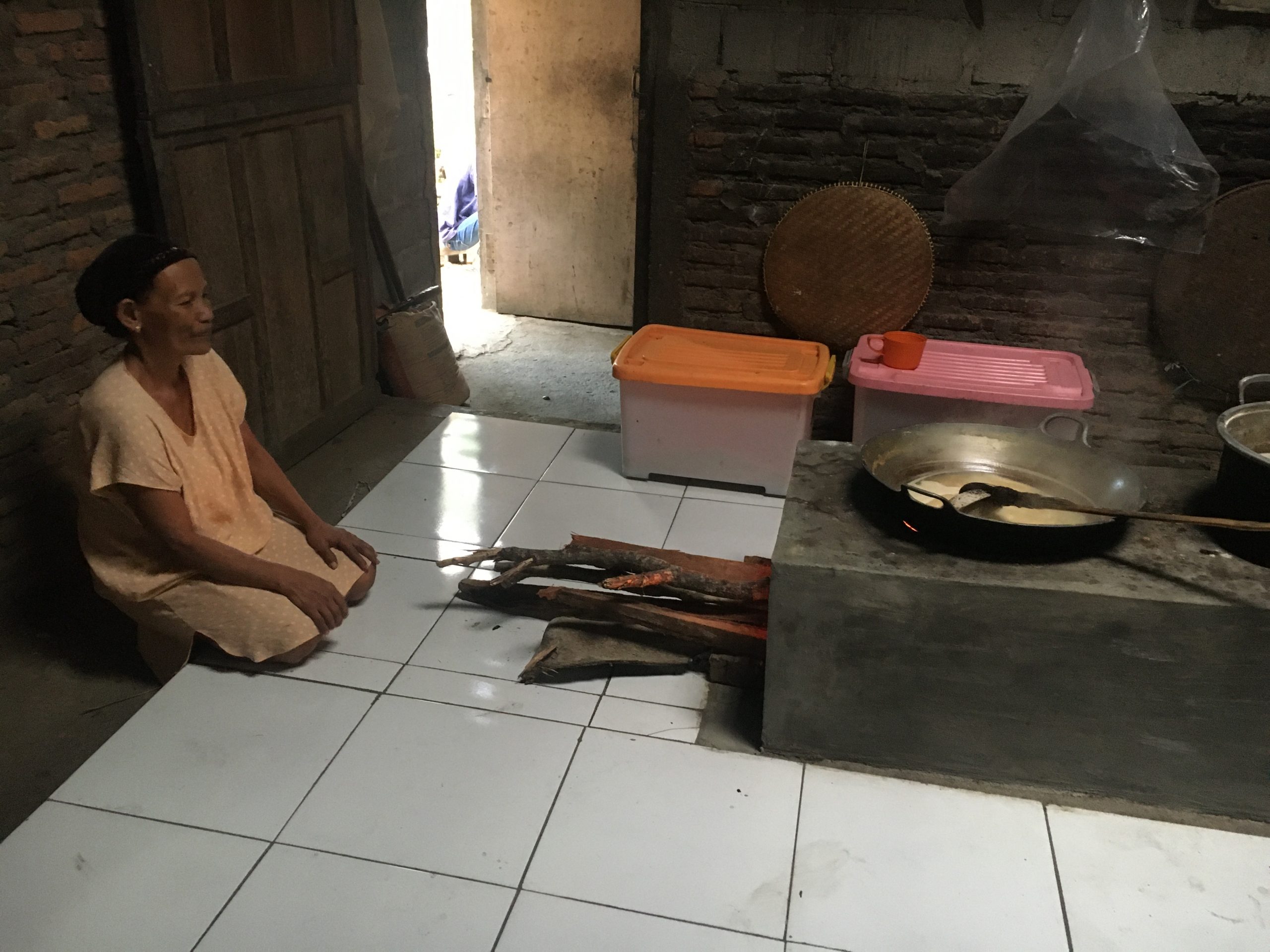
Through the ‘COVID 19 Fairtrade Emergency Initiative’ funded by the BMZ, economic recovery support is provided to 3 Coconut blossom sugar Small Producer Organisations ( 200 coconut sugar farmers (75 coconut sugar farmers in Purworejo Regency and 125 coconut sugar farmers in Banyumas Regency) through the renovation of household level sugar processing facilities (cooking kitchens) to enable HACCP compliance with direct benefits to 200 families. The activities will increase their production’s food safety from biological, chemical, physical hazards and radiological hazards. Improved hygiene standards and air ventilation will ensure greater quality of the product and thus achieve better prices. The renovation entails the physical improvement in the flooring and the stove in the kitchen facility that is used for cooking the coconut sugar. The newly built stove will prevent the kitchen being polluted by smoke generated from the burner. The floor of the kitchen will be improved from natural ground to tiled flooring for improved hygiene and sanitation. In addition to the total 200 direct farmer households benefiting from the improved HACCP facilities for their production process, the wider POs’ membership (2,229 farmers) will improve the quality of their export product.
Parmini,
"I am happy that the fire in the new stove works better than the previous one, it has made the cooking process more efficient. I can cook the coconut sugar faster. Now it is easier to clean the flooring part of the kitchen, as we have the kitchen floor covered by the ceramics tiles now. We are now saving money so that we can renovate further the kitchen. Thank you Fairtrade International and the donor of the initiative, BMZ for helping us here."
Economic Recovery Projects for supporting small coffee producer organisations
The ‘COVID-19 Fairtrade Emergency Initiative’ in Sumatra Aceh Gayo where majority of the Fairtrade coffee SPOs are located has helped them to anticipate and prepare for any unpredictable situation in the coffee industry caused by the Covid-19. The economic recovery project will contribute to a stronger production capacity at the farm and the SPO level. In order to mitigate future risk it is important to enhance the capacity at both the farm and SPO level to produce products that can fetch a better price, and also to build the capacity to store goods for a longer period of time.
• 400 pulpers, 500 rolls tarpaulins, and 3 unit of roaster and grinder were purchase and distributed to 18 Fairtrade-certified coffee SPOs and their members,
• The Pulper machine will directly benefit 3,200 farmer household (estimated per unit of pulper will be use by minimum 8 farmer households).
• The Tarpaulins distribution will benefit overall 5000 direct beneficiaries.
• The Roaster and grinder will be utilised at the SPO level to enhance the quality for exports and local products. Indirect beneficiaries are expected to reach 2,957 farmer households.

